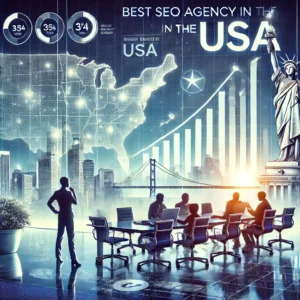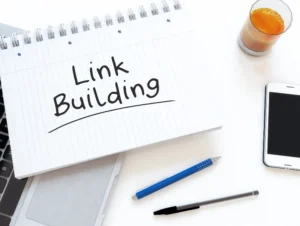The hospitality industry has always been highly competitive, and in today’s digital age, standing out requires more than just excellent service or a prime location. Investing in digital marketing services is no longer optional but essential for success. Whether you’re a boutique hotel, a large resort, or a quaint bed and breakfast, digital marketing can transform your business by increasing visibility, driving bookings, and fostering customer loyalty. Let’s dive into the top 10 reasons why your hospitality business should prioritize digital marketing.
What is Digital Marketing in the Hospitality Industry?
Definition of Digital Marketing
Digital marketing encompasses all marketing efforts that use the internet or an electronic device. In the context of hospitality, this means leveraging online platforms like websites, social media, SEO, email, and mobile apps to reach potential guests and keep existing customers engaged.
Importance of Digital Marketing for the Hospitality Sector
The hospitality industry thrives on relationships and experiences. Digital marketing helps you build and maintain those relationships on a broader scale, making it easier to connect with guests before, during, and after their stay.
The Evolution of Marketing in Hospitality
Marketing in hospitality has evolved from traditional methods like brochures and print ads to a more dynamic and interactive approach. Today, digital marketing enables real-time engagement, personalized experiences, and a direct line to customers.
Reason 1: Expanding Reach and Visibility
Importance of Online Presence
With the vast majority of travelers researching online before booking, having a strong online presence is crucial. Digital marketing helps you be where your potential guests are—whether that’s on Google, social media, or travel review sites.
How Digital Marketing Expands Your Audience
Digital marketing allows you to reach a global audience. Through search engine optimization (SEO), social media campaigns, and online advertisements, your business can be discovered by travelers far and wide, not just those who walk by your physical location.
Case Study: Successful Reach Expansion in Hospitality
Consider a small boutique hotel that struggled with low occupancy rates. By investing in a comprehensive digital marketing strategy, including SEO and targeted social media ads, they saw a 40% increase in website traffic and a 30% rise in bookings within six months.
Reason 2: Cost-Effective Marketing
Comparing Digital and Traditional Marketing Costs
Traditional marketing methods, like print ads or TV commercials, can be expensive with no guaranteed return. Digital marketing, on the other hand, offers various affordable options, from pay-per-click ads to social media marketing, allowing you to control your budget and measure your ROI more accurately.
ROI of Digital Marketing Campaigns in Hospitality
The ROI from digital marketing in the hospitality industry is often higher than traditional methods. For example, email marketing can yield an average return of $38 for every dollar spent, making it a cost-effective tool for reaching your audience.
Example of Cost Savings through Digital Channels
A mid-sized hotel chain reduced its marketing budget by 20% by shifting from print ads to digital marketing. This switch not only saved money but also resulted in more targeted campaigns, leading to a 25% increase in direct bookings.
Reason 3: Targeted Marketing and Personalization
Using Data to Target Specific Audiences
Digital marketing allows you to collect and analyze data to understand your customers better. With this data, you can create targeted campaigns that appeal directly to specific segments of your audience, such as business travelers, families, or honeymooners.
Personalized Marketing Campaigns
Personalization is key in the hospitality industry. Digital marketing tools like email segmentation, personalized ads, and dynamic website content ensure that your guests receive messages and offers tailored to their preferences, enhancing their experience.
Benefits of Targeted Campaigns in the Hospitality Industry
Targeted campaigns lead to higher engagement and conversion rates. For instance, a resort that uses targeted email marketing to offer discounts to repeat guests may see a significant increase in repeat bookings.
Reason 4: Enhancing Customer Engagement and Interaction
Social Media as a Tool for Engagement
Social media platforms like Instagram, Facebook, and Twitter are perfect for engaging with guests. Posting regularly, sharing user-generated content, and responding to comments can create a community around your brand and keep guests coming back.
Interactive Content and Its Impact on Hospitality Businesses
Interactive content, such as polls, quizzes, and live Q&A sessions, engages potential guests and keeps your brand top of mind. This type of content can also gather valuable insights into what your customers want, helping you tailor your offerings.
Customer Feedback and Engagement Examples
A well-managed social media presence can turn a negative review into a positive experience. By promptly addressing customer concerns online, a hotel can demonstrate its commitment to guest satisfaction and potentially convert unhappy customers into loyal ones.
Reason 5: Building and Managing Reputation
The Role of Online Reviews and Testimonials
In the hospitality industry, your reputation is everything. Digital marketing helps you manage and build your reputation by encouraging satisfied guests to leave positive reviews and testimonials on platforms like TripAdvisor and Google.
Reputation Management Strategies
Proactively managing your online reputation involves monitoring reviews, responding to feedback, and engaging with your audience. This not only builds trust but also influences potential guests’ decisions.
Case Study: Reputation Recovery through Digital Marketing
A hotel facing a PR crisis due to a string of negative reviews successfully turned its reputation around by implementing a reputation management strategy. They engaged directly with reviewers, made necessary improvements, and shared their progress online, resulting in improved ratings and an increase in bookings.
Reason 6: Boosting Direct Bookings
Reducing Dependency on Third-Party Platforms
While OTAs (Online Travel Agencies) are useful for visibility, they also take a significant commission. Digital marketing helps drive direct bookings through your website, increasing your revenue and allowing you to have more control over the guest experience.
SEO and SEM Strategies for Direct Bookings
Optimizing your website for search engines (SEO) and investing in search engine marketing (SEM) can drive more direct traffic to your site. This means potential guests find you first when searching for accommodations, reducing the need for intermediaries.
Success Stories of Increased Direct Bookings
A luxury hotel implemented a robust SEO strategy combined with a user-friendly booking engine on their website. As a result, they saw a 50% increase in direct bookings within a year, significantly reducing their OTA commissions.
Reason 7: Improving Customer Loyalty
Loyalty Programs and Email Marketing
Loyalty programs are a proven way to keep guests returning. Digital marketing enhances these programs by making it easier to track points, send personalized offers, and communicate with loyal customers through email marketing.
Engaging Returning Customers through Digital Channels
Retaining customers is often more cost-effective than acquiring new ones. Through regular communication via email newsletters, personalized offers, and social media engagement, you can keep your brand top of mind and encourage repeat visits.
Examples of Successful Customer Retention Campaigns
A well-known hotel chain used digital marketing to revamp its loyalty program, introducing an app that made it easier for customers to earn and redeem points. This initiative led to a 35% increase in repeat bookings.
Reason 8: Gaining Valuable Customer Insights
Data Collection through Digital Channels
Digital marketing platforms provide a wealth of data about customer behavior, preferences, and trends. This data can be used to refine your marketing strategies and make more informed business decisions.
Analyzing Customer Behavior and Preferences
Tools like Google Analytics and CRM systems allow you to track how customers interact with your website, what content they engage with, and what drives their booking decisions. This information is invaluable for tailoring your services and marketing efforts.
How Insights Lead to Better Decision-Making
By analyzing data from digital channels, a resort identified that most of their bookings came from a specific geographic area. They then focused their marketing efforts on that region, resulting in a significant increase in bookings.
Reason 9: Staying Competitive in a Digital World
The Necessity of Digital Presence for Competitiveness
In today’s market, a strong digital presence isn’t just an advantage—it’s a necessity. Without it, hospitality businesses risk being overshadowed by competitors who are more digitally savvy.
Keeping Up with Digital Trends in Hospitality
Staying current with digital marketing trends—such as mobile optimization, voice search, and influencer marketing—ensures your business remains relevant and competitive.
Examples of Businesses Falling Behind Without Digital Marketing
Several once-prominent hotel chains have struggled in recent years due to their slow adoption of digital marketing strategies, leading to declining visibility and reduced bookings.
Reason 10: Flexibility and Adaptability
Adapting to Market Changes with Digital Marketing
The hospitality industry is often subject to rapid changes—whether due to economic shifts, global events, or changing consumer preferences. Digital marketing allows for quick adaptation through adjustable campaigns, real-time analytics, and responsive strategies.
Flexible Marketing Strategies during Economic Fluctuations
During economic downturns or unexpected events like a pandemic, digital marketing offers the flexibility to pivot strategies quickly, ensuring continued engagement with your audience despite challenging circumstances.
Examples of Quick Adaptation through Digital Campaigns
During the COVID-19 pandemic, many hotels shifted their focus to local markets, promoting staycations and work-from-hotel packages. This quick pivot, facilitated by digital marketing, helped maintain occupancy rates during a difficult time.
Conclusion
Investing in digital marketing is crucial for any hospitality business looking to thrive in today’s competitive landscape. From expanding your reach and enhancing customer engagement to improving loyalty and gaining valuable insights, the benefits are clear. By embracing digital marketing, you not only keep up with the competition but also set your business on a path to long-term success.
FAQs
What are the most effective digital marketing strategies for hospitality businesses?
The most effective strategies include SEO, social media marketing, email marketing, and content marketing. These approaches help increase visibility, engage with potential and returning guests, and drive direct bookings.
How much should a hospitality business invest in digital marketing?
The investment depends on the size of your business and your specific goals. However, a good rule of thumb is to allocate 10-15% of your annual revenue to marketing, with a significant portion dedicated to digital efforts.
What are the key metrics to track in digital marketing for hospitality?
Key metrics include website traffic, conversion rates, cost per acquisition, customer lifetime value, and social media engagement. Tracking these helps you measure the effectiveness of your campaigns.
Can digital marketing help small hospitality businesses?
Absolutely. Digital marketing levels the playing field, allowing small businesses to compete with larger ones by reaching a broader audience and engaging directly with customers at a lower cost.
How quickly can a hospitality business see results from digital marketing?
Results can vary, but many businesses begin to see improvements in traffic and engagement within the first few months. Full results, especially in terms of ROI, typically take 6 to 12 months, depending on the strategies implemented.




